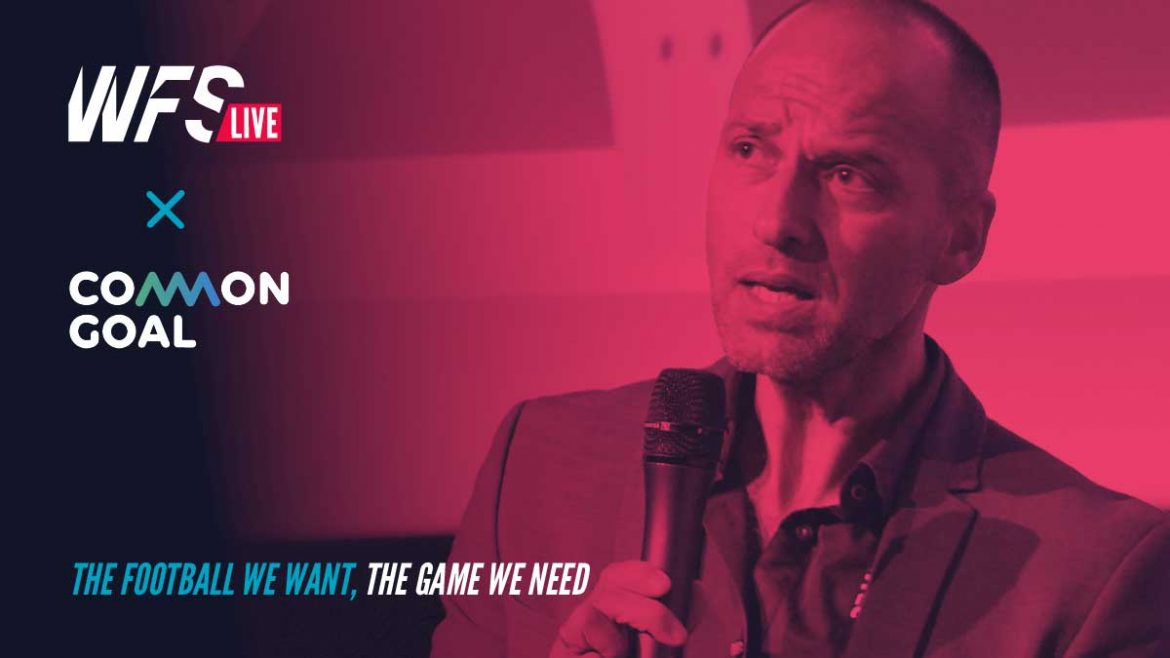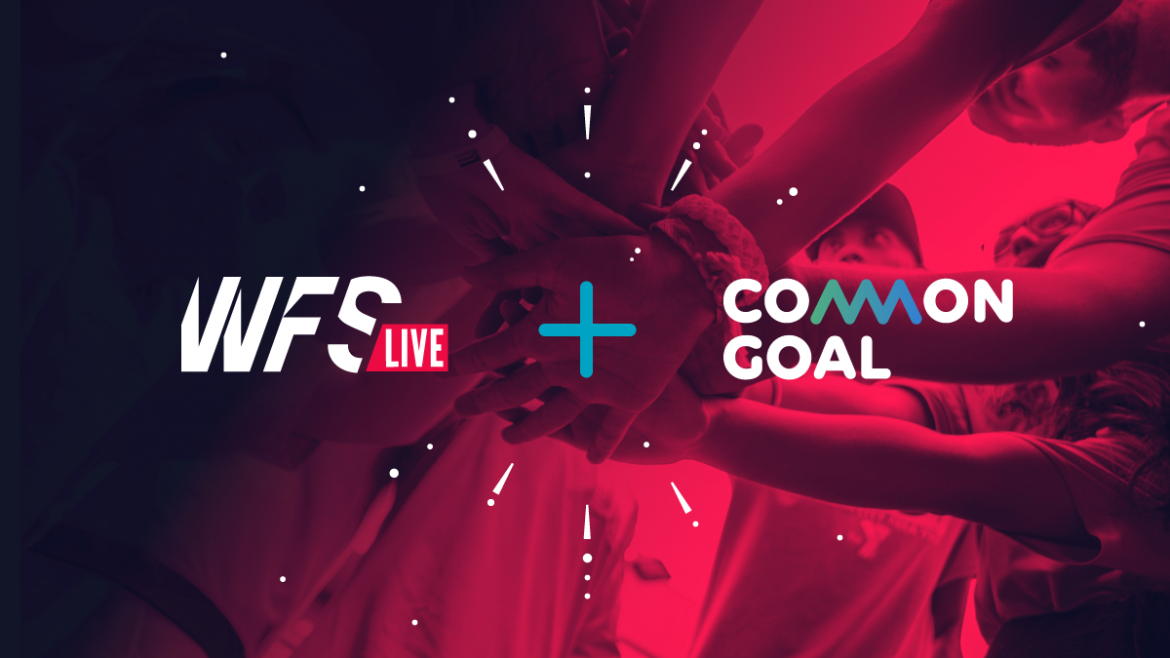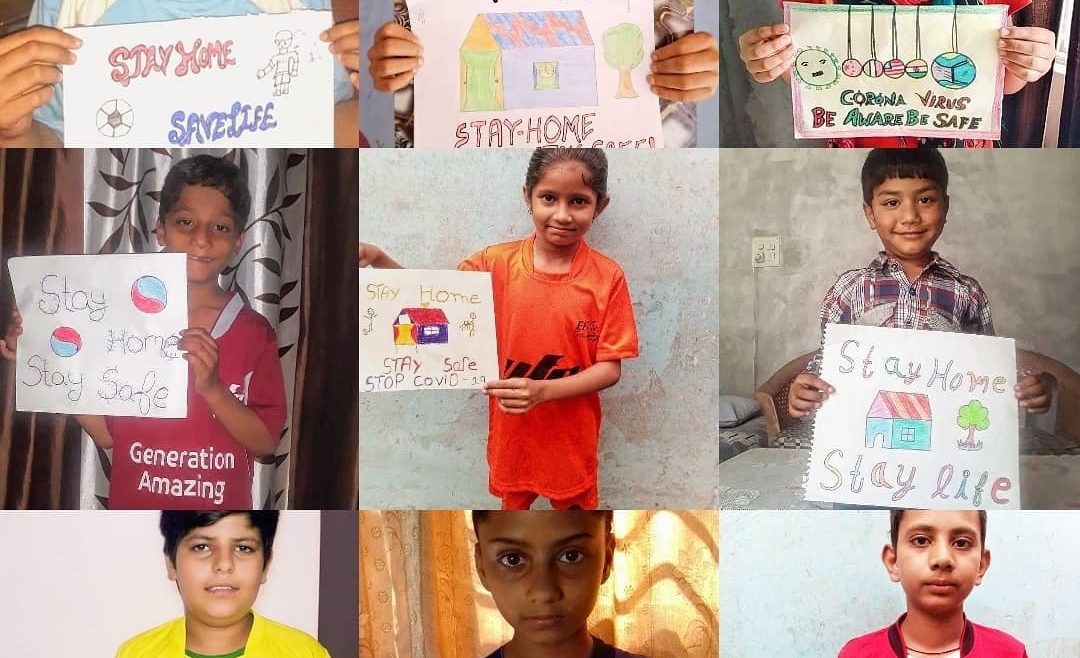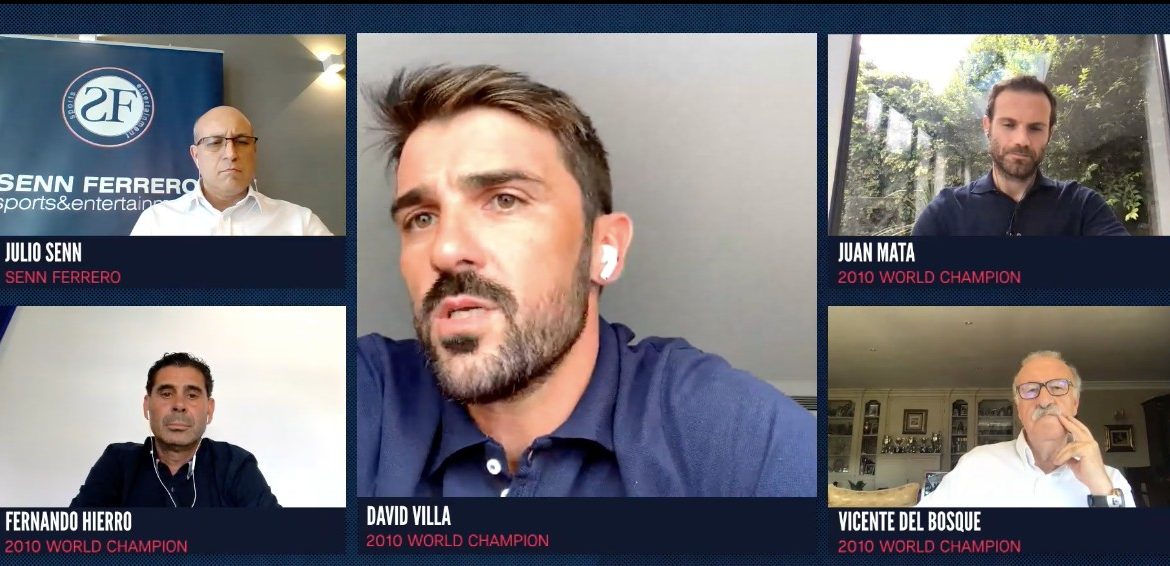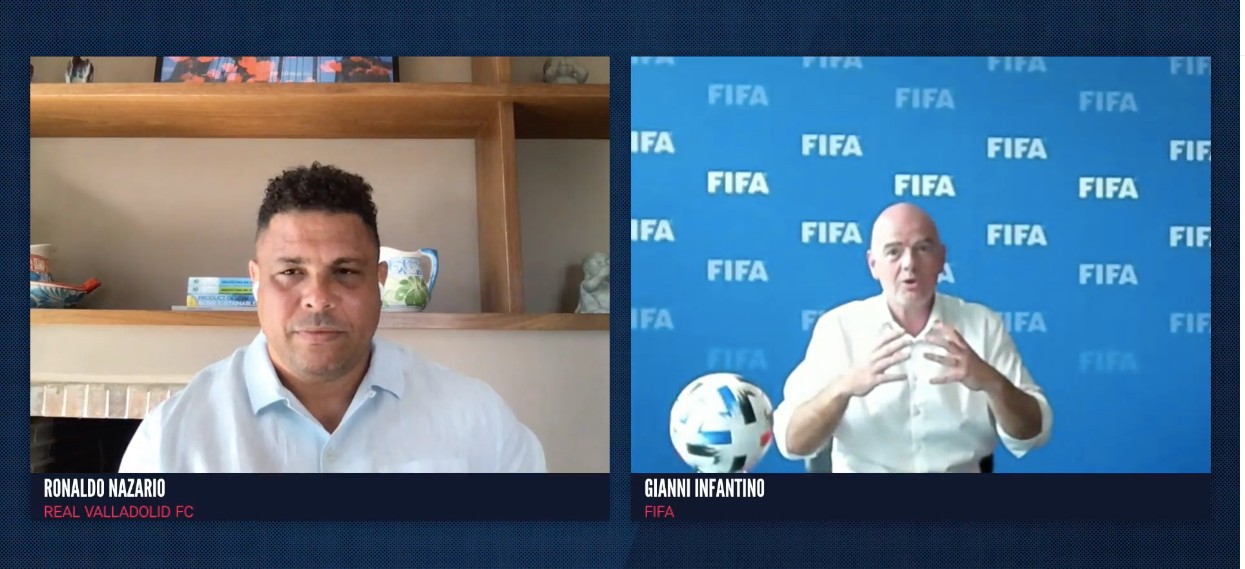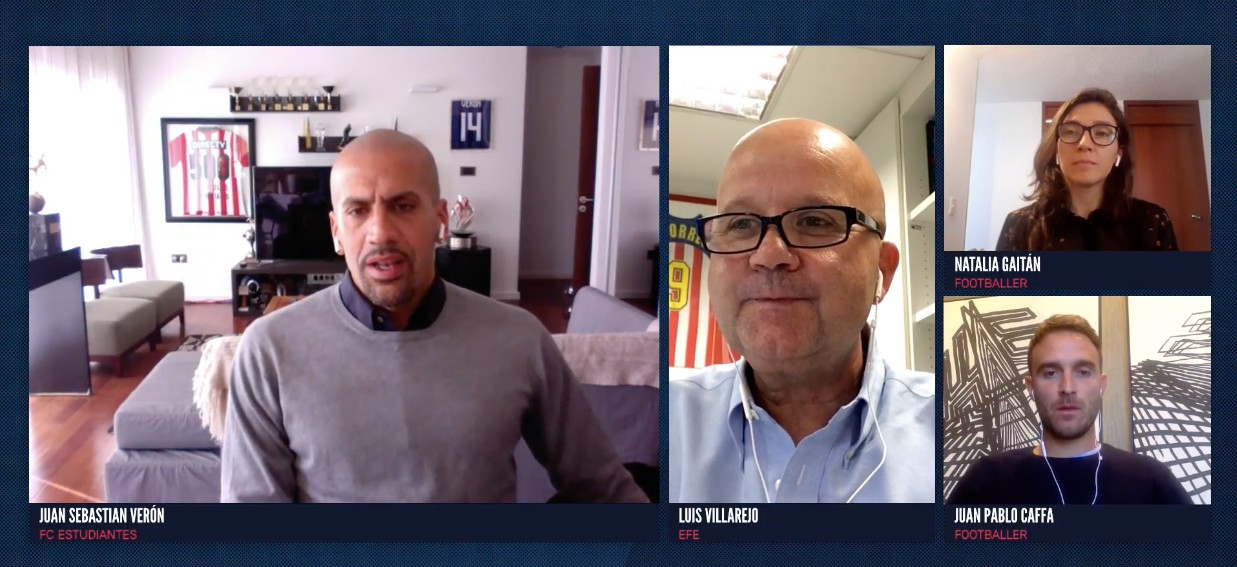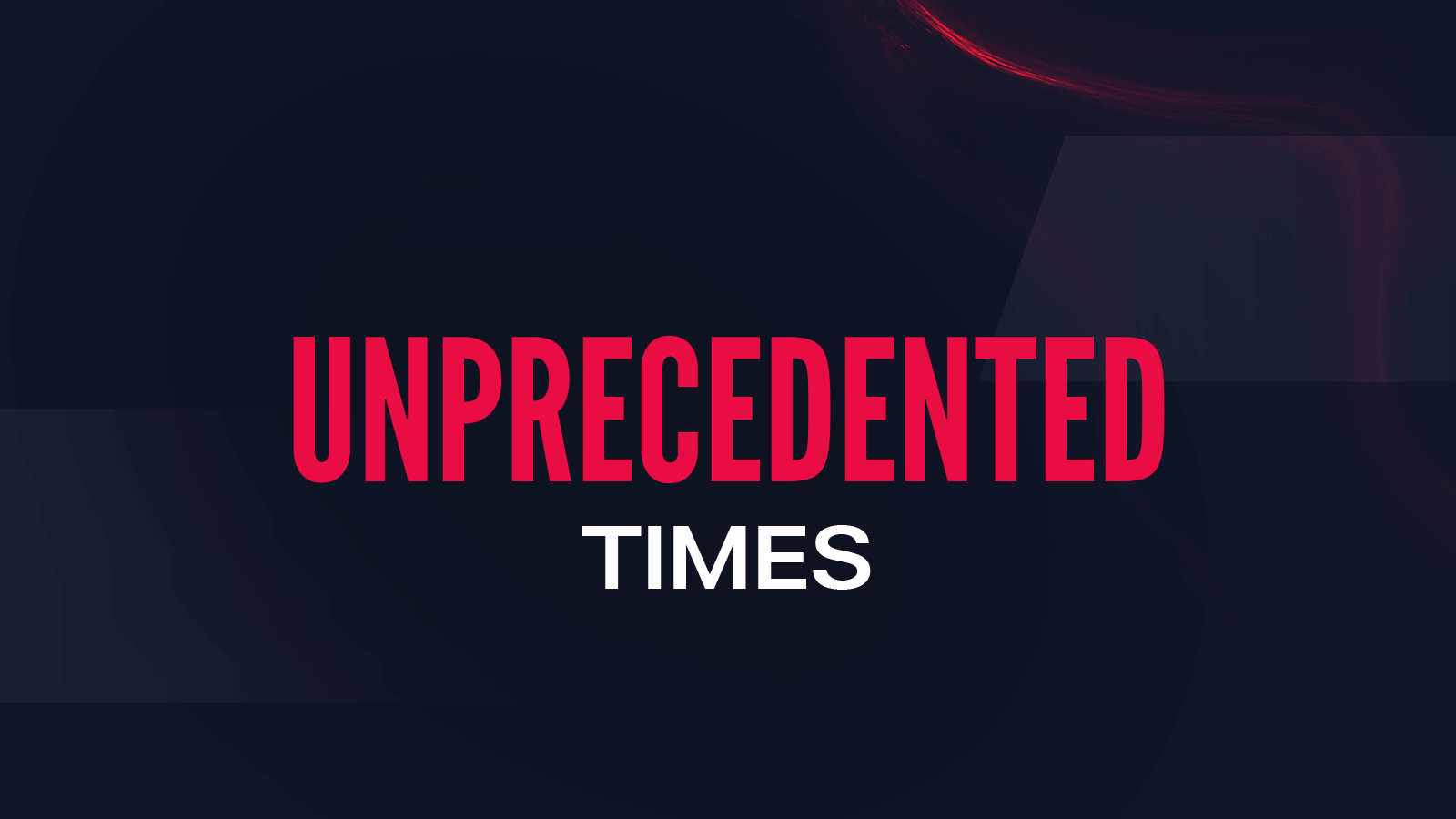The football we want, the game we need! These eight words will form the spine of WFS LIVE‘s opening day, as WFS and Common Goal team up to invite football’s stakeholders and decision makers to reimagine the industry over the next decade.
Driven by the ambition of maximising football’s positive impact on society, all day one panels will set out to provide an answer to a question crucial to the sport’s future: How can we embed purpose at the heart of the game?
A month ahead of the event, we talked to Common Goal co-founder Jürgen Griesbeck to know more about how the WFS Live programme is being shaped, the key topics that will be addressed, and the specific goals that we’re aiming to achieve as we look to turn discussion into action and instigate a turning point for the industry.

Jürgen Griebeck (l.) and Common Goal have been central figures at WFS events since our inception.
Q. Common Goal reacted very quickly to coronavirus, launching the Common Goal Covid-19 Response Fund which aims to deliver essential support services to vulnerable youth not only during the pandemic but also afterwards. Can you give us an update on how the fund is going and the work that your partner organisations are carrying out?
A. The COVID-19 crisis has put the world in an unprecedented situation. More than ever, we realised how vulnerable we are and the need for a collective response. With Common Goal, we had a mechanism that enabled us to provide a rapid response, given our existing network of community organisations and our community of members and partners from the football industry, including players, managers and other stakeholders such as World Football Summit.
Since the start of the pandemic, we have supported around 40 football for good organisations working across the globe with two different projects: the Common Goal COVID-19 Fund, with a global reach; and the Common Ground project, with a focus in Germany. The principle behind it all being: support young people who are in a situation of vulnerability and for whom the crisis has amplified existing challenges such as poverty, lack of access to education, essential services, safe spaces, and being exposed to gender violence and forced migration.
1/ 🚀 Common Ground Project Kick Off – a thread pic.twitter.com/7p7Sn4BmXP
— Common Goal (@CommonGoalOrg) October 14, 2020
Such efforts were done through our network of community organisations, who, in addition to implementing football for good programmes for young people as their “day to day activities”, represent an important form of support for young people, families, and their local communities – and are at the center of the community development. This has been of crucial importance during the crisis, especially for young people who have seen a halt in services and measures that had previously provided a sense of home and reliable relationship structures.
Q. Since 2017, Common Goal and World Football Summit have jointly promoted football as a force for good, but for the coming WFS Live you’re going to take a step forward and devote a full day to the ambitious objective of embedding social purpose in the industry’s agenda for the future. Why have you decided to take this step now, when the industry is experiencing one of its biggest ever crisis?
A. Since the launch of Common Goal, the support from World Football Summit has been remarkable, both with WFS becoming a member of Common Goal in 2017 but also always providing a space for Common Goal and believing in the vision we have for football.
Now is the moment to discuss and shape the future we want for the football industry and take action. Not only because of the crisis of the football industry but rather because with the current global crisis we have realised how vulnerable we are a society, and how interconnected we are. We have a responsibility to act together as a global community, as a collective, and football, as the biggest cultural phenomenon on earth, has the responsibility and opportunity to be a big part of it. World Football Summit is creating a space to enable these discussions to happen and we are thrilled to help shape these discussions and the way forward in cooperation with institutions, athletes, the corporate world and the football community as a whole.
Q. Football is a global industry that cuts across so many different sectors and involves a wide range of stakeholders. Which stakeholders do you think have a more important role to play in the objective of shifting from a CSR approach to really embedding purpose in the industry’s DNA?
A. Instead of pointing fingers towards a specific stakeholder group, I think rather we all need to take responsibility.
The football industry has developed into an economic powerhouse, with double digit percentage growth – even during the global financial crisis and despite a massive reputational crisis. But such a model is not sustainable in a world where, more and more people are concerned about the sustainability of our planet, the social and economic gap… especially new generations of young people who are, for the first time, looking at how purpose-driven and socially responsible the brands they consume or their employers are. COVID-19 has reinforced the need for a shift towards a purpose-driven economy, and football won’t be an exception. Now, who is responsible to enable this shift? In essence everyone.
This moment of tangible crisis has inspired activism among athletes and has also challenged the corporate world to take an authentic stand in regards to their contribution to people and planet. The global fan community is also voicing this need in a number of ways.
Actions that athletes, the corporate world and fans are taking can have a ripple effect and accelerate things. But we need the commitment of institutions, which are moving at a slower pace and still remain in an ad-hoc or CRS style system when it comes to driving and implementing socially conscious initiatives.
Q. At the coming WFS Live you will be inviting the industry stakeholders to reimagine the football industry with the vision on 2030. Do you think the industry can agree on an Agenda featuring a number of objectives similar to the UN Sustainability Agenda?
A. I think the industry doesn’t need to define a new agenda or a new set of objectives but rather use the UN Sustainability Agenda as the framework to define its purpose and vision for the future. When it comes to the future well-being of our society and the sustainability of our planet, the football industry cannot act in isolation.
The 2030 Agenda for Sustainable Development is the blueprint to achieving a better future for all – and the key question is how we can embed it into the fabric and culture of football in a meaningful way. This means rethinking football over the next 10 years with the ambition of driving progress towards the Global Goals, instead of taking profit as its guiding principle and as the main indicator of success.
Q. The theme chosen for this first day of conferences is “the football we want, the game we need”. Football has been used as a very efficient tool to drive development and social change across the world for a long time. What does this fast-changing society need and how can football support?
A. We are facing a global crisis, even before COVID-19, where issues related to social justice and the sustainability of our planet are increasing at an alarming rate. Everyone at this stage is aware of how interconnected we are, but we haven’t yet fully acknowledged how interdependent we are as a society.
We've teamed up with long-term #WFS partners @CommonGoalOrg to turn discussion into action at #WFSLive as we firm our commitment to promote football’s contribution to social change.https://t.co/Duhj3swiUf
— World Football Summit (@WFSummit) September 24, 2020
The current crisis has shown that to face global challenges we need to promote and live up to values of community, inclusivity, togetherness and individual responsibility; actually values at the core of football as a team sport. It is by bringing those values forward in the way we imagine football, that football can also play a leading role in this critical decade of action.
Q. One of the main objectives for this event is turning discussions into actions. What are the actions that football ought to take with utmost urgency in your opinion?
A. With Common Goal we believe that the best way to start was the 1% pledge. The 1% is a symbol of what can be achieved through team play. Everyone can contribute and, while it is a small individual effort, it can generate a great impact. And it provides the opportunity for the football industry to embed purpose in a very simple systemic way that can be adopted by everyone. It can become part of football’s re-wired DNA.
The 1% also represents an opportunity not only because it enables the industry to embed purpose at its core, but because it can lead an example for other sectors and for society as a whole to follow and make contribution “the new normal”. And here we are not only talking about 1% as a pledge or as a donation, we are talking about 1% of time, for example, that fans could donate in contribution to our people and our planet. Setting a new path, changing the mindset, redefining what success is for us as a team, as a society, as humanity.
Tickets are now on sale for November’s WFS Live event, with 10% of all sales going towards Common Goal’s fight against coronavirus, and are available via THIS LINK.
